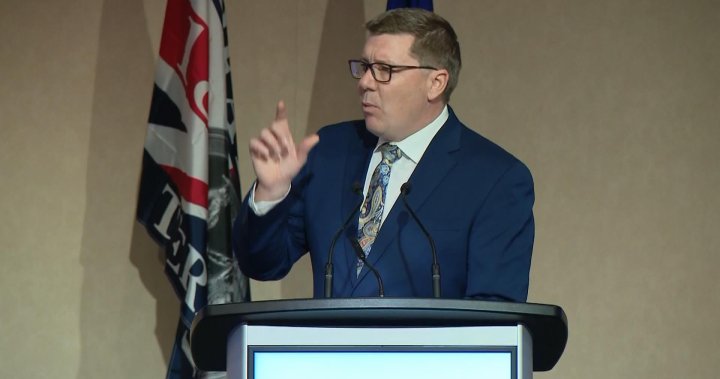On the final day of the Saskatchewan Association of Rural Municipalities convention, provincial ministers faced questions from community leaders and members regarding infrastructure funding, mental health and addictions support, and other pressing issues. Strasbourg mayor Kelvin Schapansky specifically asked about funding for fire equipment and the building of fire halls in small municipalities. The Fire Chiefs of Saskatchewan noted that 38 communities will need new fire halls in the next five years as equipment becomes outdated. Minister of Government Relations Don McMorris explained that funding for such projects comes from the Investing in Canada Infrastructure Program, which provides over $900 million in federal funding for various Saskatchewan infrastructure projects. While Schapansky was not entirely satisfied with the response, highlighting the need for further action, the conversation shed light on the challenges faced by rural communities.
In addition to infrastructure funding, concerns were raised about mental health and addictions support in rural areas. One audience member questioned the government’s plans to build capacity for addiction treatment and support services. Minister of Mental Health and Addictions Tim McLeod disclosed that the province is working to add 500 more addiction treatment spaces across the province, covering detox, in-person treatment, virtual services, and transitional living spaces. While these efforts aim to address the growing need for addiction support in rural communities, questions remain about the elimination of funding for harm reduction services providing drug tools. The discussions at the bear pit session highlighted the need for continued advocacy and support for mental health and addiction services in rural Saskatchewan.
Throughout the bear pit session, various concerns and questions were raised to provincial ministers, providing a platform for community members to address important issues facing their municipalities. Minister McMorris acknowledged that people’s concerns were heard on a range of topics, reflecting the diverse challenges that communities are grappling with. While many MLA’s are constantly in touch with different parts of the province, bringing everyone together in one room at the SARM convention proved valuable in fostering dialogue and understanding. The event served as an opportunity for community leaders and government officials to engage in meaningful discussions around key issues impacting rural Saskatchewan.
Looking ahead, the conversation at the SARM convention underscored the ongoing need for collaboration and advocacy in addressing the unique challenges faced by rural communities. The 2025 SUMA convention, expected to be held in Saskatoon, will provide another opportunity for community leaders and government officials to come together and discuss pressing issues. As rural municipalities continue to navigate complex issues such as infrastructure funding, mental health support, and addiction services, ongoing dialogue and collaboration will be crucial in driving positive change and ensuring the well-being of all residents. By working together and amplifying the voices of rural communities, Saskatchewan can make strides towards a more resilient and thriving future for all.


